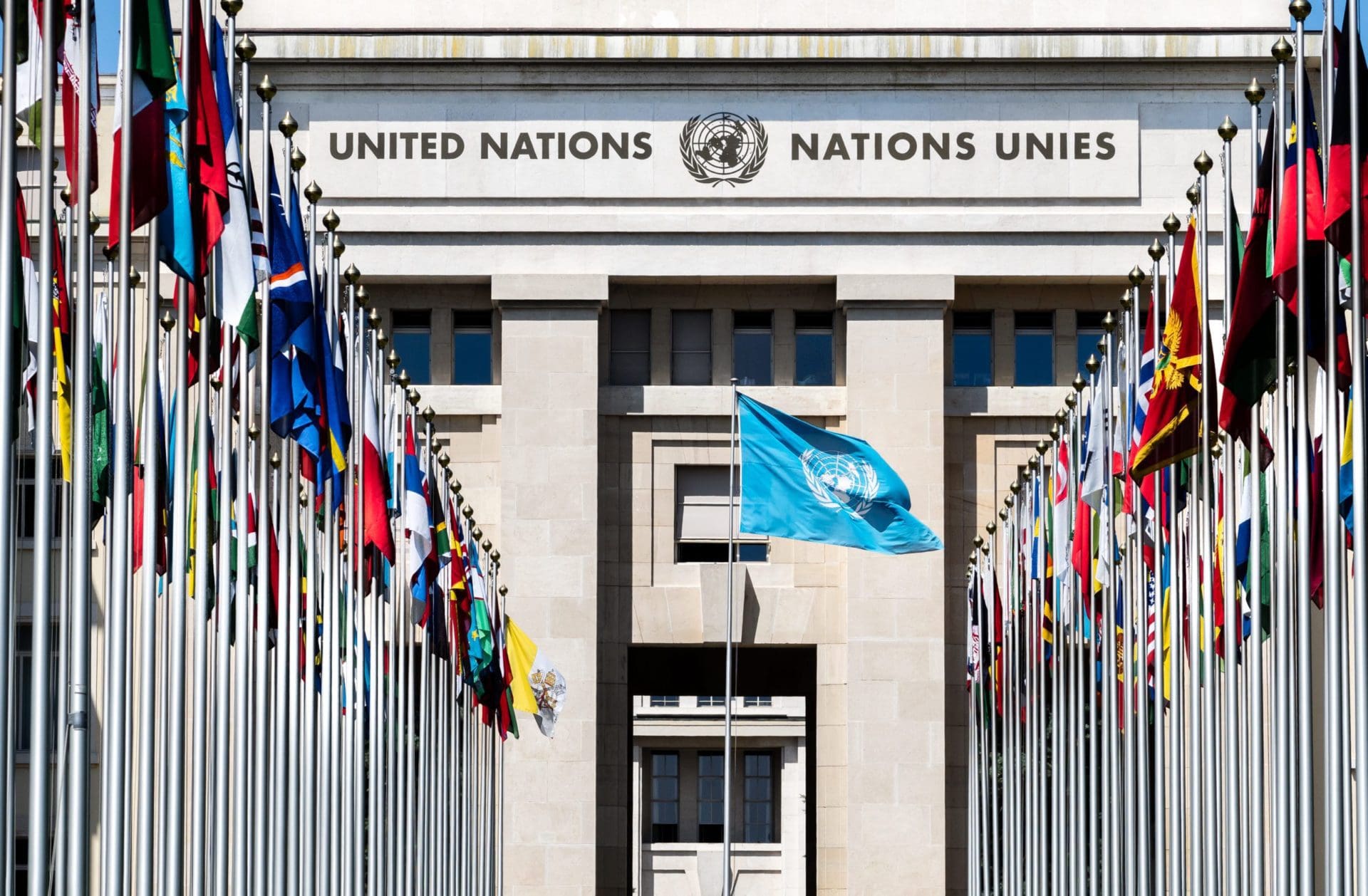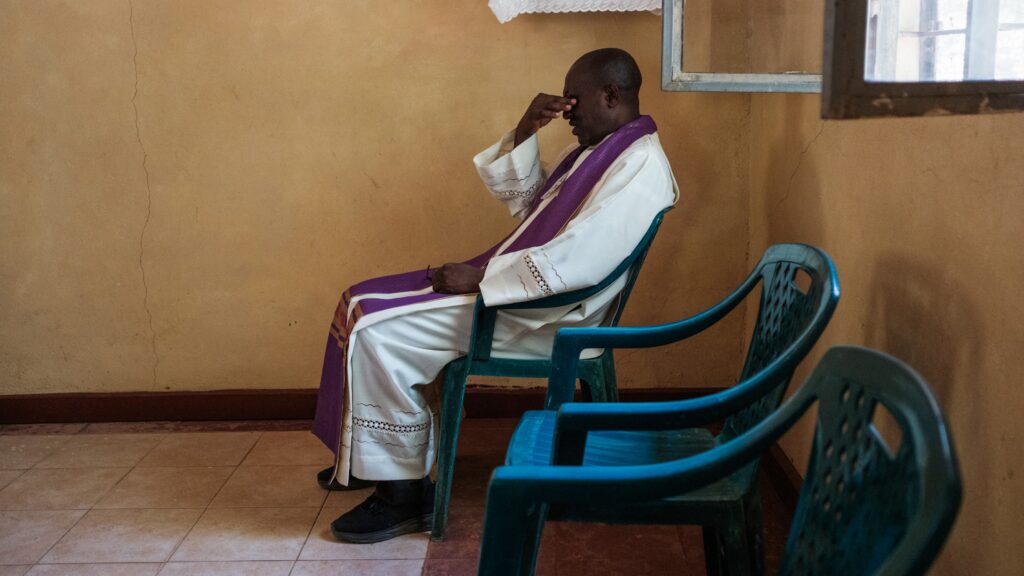The 193 member states of the United Nations General Assembly voted overwhelmingly on 24 March 2022—exactly one month after Russian Federation troops had invaded Ukraine—to demand an immediate cessation of hostilities by Russia against the war-torn nation, to increase humanitarian access to protect civilians fleeing the bombardment, and to secure access to food and medicine. The war is now two months old, and notwithstanding continual efforts by the UN Security Council to stop the fighting, such collective security efforts have achieved very little if nothing at all.
The inability of the UN to halt the war, just as the League of Nations was unable to prevent Italy’s invasion of Ethiopia in 1935 or the outbreak of the Second World War, is par for the course. In fact, not only has the UN collective security, as explained by Henry Kissinger, historically failed to prevent major threats, it ‘has never succeeded in imposing peace on reluctant parties or on a party backed by a permanent member of the Security Council’.[1]
The Structure of the UN Collective Security
The UN is a collective security system which is juridically neutral. Therefore, unlike the North Atlantic Treaty Organisation (NATO), which is a collective defence system that deals with a specific and specified threat and has military forces to address its threats, the UN is coerced to wait for a threat to emerge before it can consider action.
The task of the UN is activated by the Security Council, which responds to the declared needs (by vote) of the member states.The Security Council consists of fifteen members: five permanent ones: the United States, the United Kingdom, France, Russia and China and ten temporary ones with two-year terms.
In theory, under Chapter Six of the UN Charter, ‘Pacific Settlement of Disputes’, the Security Council is entitled to investigate disputes and all other situations that may lead to such disharmony. Hence, it may vote for appropriate procedures in order to keep peace and settlement using all possible ways such as collective security procedures. These decisions cannot be made unless nine out of the fifteen members of the Security Council, at least, give their consent and so long as none of the five permanent members veto such decisions.
The Defect in UN Collective Security
The failure in UN collective security is substantially due to the manner in which it is structured. It is exclusively dependent on the Security Council in which the aggressor cannot be named in advance and has a right to take part in the deliberations concerning its actions.
Since Russia is one of five permanent members, it has always used its veto power to halt any action against itself
When a threat emerges, the members of the collective security system are supposed to come to terms on its nature. It is only then can they assemble collective forces to meet it. If the assailant happens to be one of the five permanent members of the Security Council, it has the right to veto the determination of who is the culpable or the collective measures to be undertaken. And since Russia is one of five permanent members, it has always used its veto power to halt any action against itself.
During the days of the Soviet Union, for example, the Russians shot down a Korean airliner Flight 007 in 1983, which mistakenly flew into Soviet airspace. Eventually, the Soviets vetoed a UN resolution that would have condemned the shooting of the airliner in addition to possible penal sanctions.
With respect to the invasion of Ukraine, as Kelly Craft, former US Ambassador to the UN (2019–2021) stated:
‘With Russia, a veto-wielding permanent member of the council, there is no way to avoid Moscow blocking a resolution that would condemn Russian aggression and support a ceasefire that would end to this horrific war.’
In rare cases when the UN has succeeded in its peacekeeping effort, i.e., when all the parties have agreed, particularly when the issue has been the technical implementation of an agreement, the need for collective security has been minimal. And when the parties have been divided, it accordingly made such implementation impossible.
An example of this occurred when a unanimous resolution of the Security Council granted the US to carry out various military humanitarian interventions in Somalia in the 1990s. Officially, it was a peacekeeping mission and not a military one. However, the consensus of the Security Council quickly dissipated as soon as the mission ‘turned from peacekeeping to peacemaking, from supervising what the parties had accepted to imposing an outcome on one or more parties by force’.[2]
Paradoxically, whenever individual nations have successfully taken it upon themselves to resolve their own international crisis, as Egypt and Israel did with the Camp David Accords of 1978, the UN has been quick to not just criticize such treaties but to disavow them.
The Camp David Accords were rejected by the UN because they were concluded without its participation, as well as that of the Palestinian Liberation Organisation (PLO)—UN Resolution 33/28 (December 1978) declared that agreements were only valid if they are within the framework of the UN Charter and because they did not comply with the Palestinians right of return to their land, self-determination and to their national independence and sovereignty.
It is true that the US-led invasion of Kuwait during the First Gulf War (1990–1991), which was backed by the UN Security Council, was successful in forcing Iraqi troops to withdraw from Kuwait. Nevertheless, it failed to curtail Saddam Hussein from reorganizing his military might. And while the UN did not support the US invasion of Iraq in 2003, it did nothing more than voice its opposition, for it was powerless to do anything that would have been juridically effective, just as the present war between Russian and Ukraine.
[1] Henry Kissinger, Does America Need a Foreign Policy? (New York: Simon & Schuster, 2001), 43.
[2] Kissinger, Does America Need a Foreign Policy?, 259.








